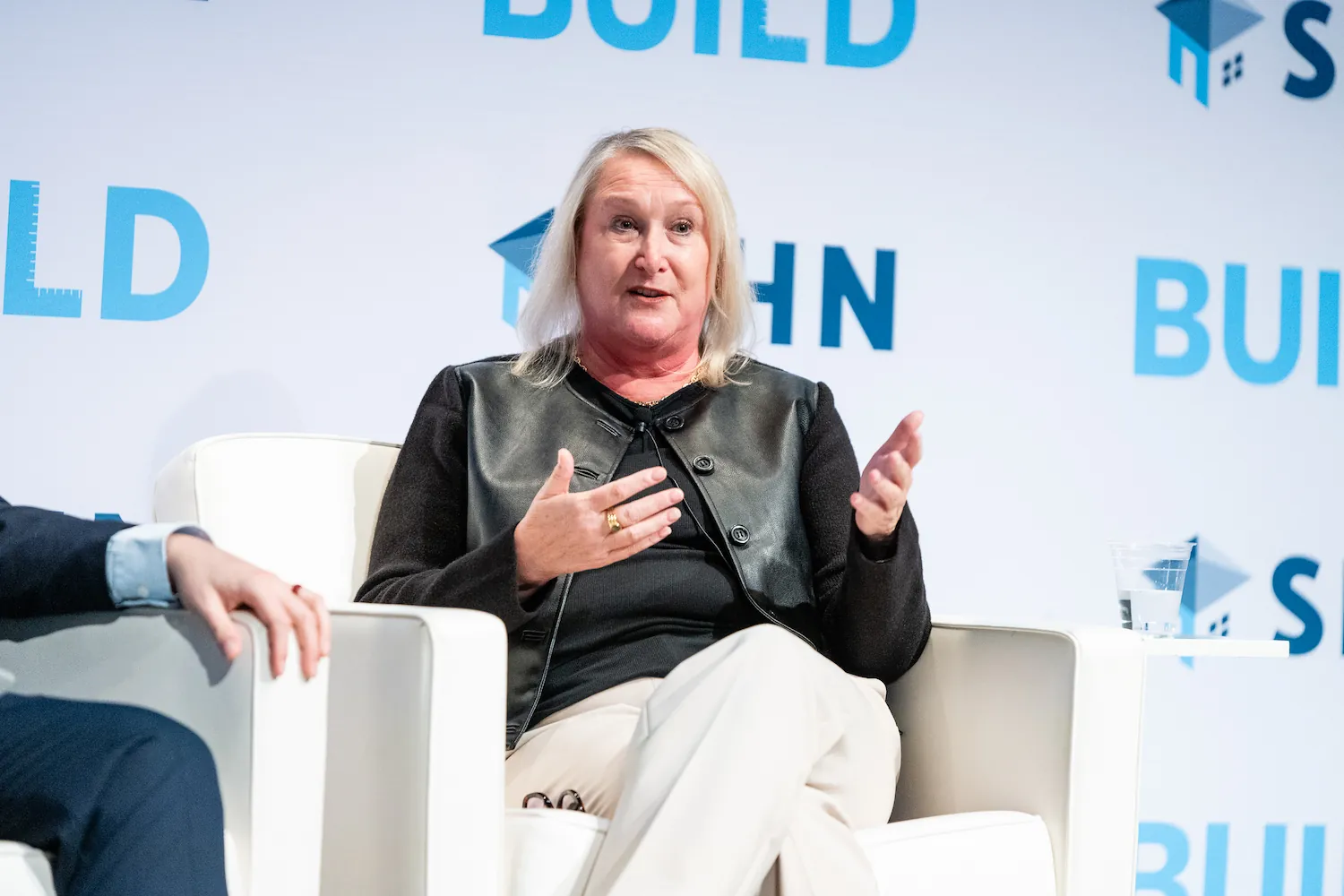How Trilogy Health Services Is Building A More Complete Senior Living Continuum

Some companies and leaders are hesitant to build a full continuum of care for senior living, given the challenges of skilled nursing – not Trilogy Health Services or its CEO and president, Leigh Ann Barney.
The Louisville, Kentucky-based senior living company has a model that includes units ranging from independent living patio homes to skilled nursing and assisted living. In addition to baking in a full care continuum with skilled nursing on its campuses, Trilogy is also somewhat unique in that it is now owned by a real estate investment trust, American Healthcare REIT (NYSE: AHR).
Looking ahead, Barney believes that the incoming baby boomer generation will prioritize having many choices at their fingertips, and the security of living in one community that has many different services that may eventually need.
“Our whole continuum gives them the comfort that they only have to go to one place,” Barney said during a panel discussion at the recent Senior Housing News reBUILD conference in Chicago. “The boomers are going to want more choices … and they’re going to want to stay in place longer.”
It’s no secret to many operators that offering higher-acuity senior living services is more complicated than the lower end of the acuity ladder. Operators offering higher-acuity services must grapple with new and complicated payment sources and clinical complexity, and that is not an exercise for the faint of heart.
But Barney said that it is Trilogy’s specialty, and that it positions the company well for the years to come as baby boomers move into senior living communities that can offer what they are looking for.
“It doesn’t scare us,” she said. “We’ve actually always looked at our senior housing as a more clinical model.”
Inside Trilogy’s ‘fourth generation’ model
Trilogy has tinkered with its model over the years, and the company is now on its “fourth generation” of senior living communities, Barney said. She added that the operator’s ability to offer both homelike independent living and skilled nursing on the campus makes it somewhat of a “unicorn” in the industry.
Trilogy builds communities with a “big village concept” in mind, and locates units around common services and amenities. Typical Trilogy communities have both large community rooms and smaller more intimate spaces, like libraries.
Not long ago, senior living operators thought that senior living residents receiving different services would want separate spaces, but Trilogy has found that is not true with today’s residents.
“People mix a lot more than we originally anticipated,” Barney said.
Trilogy in the past year has opened several new communities under its newest model, and the operator has also undertaken adding patio homes to existing communities in a few cases in that time. Looking ahead, the company has another campus under construction in Portage, Michigan, and projects to add or expand villa homes at five properties.
“The patio home concept … we like them,” Barney said. “They’re quicker to build, so we can get them done in under a year, and usually with a lower capital investment. And then they sell very well. It seems to be a great entry point to getting into our continuum.”
Like other senior living operators, Trilogy is building out its services and communities in service of attracting members of the incoming baby boomer generation. Barney believes that boomers will want to pick one community in which to live and age in place, and that they will want many of the lifestyle amenities they enjoyed in live when they do.
Incoming older adults will desire telemedicine and medication delivery in addition to familiar dining and entertainment options. And they will want maximum flexibility in their daily activities, she said.
“We’re going to have to rethink our activity calendars,” Barney said. “Self-scheduling makes a lot of sense. [They want to] go on apps and choose what they want for dinner or choose when they go to the beauty shop, those types of things.”
To meet those demands, Trilogy has its own pharmacy to deliver medications onsite. The company also is piloting software that would log incoming residents’ wants and needs and compile them into a database that helps group them by their preferences. That way, for example, the company could more easily identify affinity groups to plan better connections among residents.
“When construction does start, you don’t want to go out and just think that you know everything and rush out to do something,” Barney said. “We’ve taken this time where we aren’t building as much to look at our new design, and we’re going to be very consumer-focused, trying to not think that we know all the answers.”
Trilogy’s next steps
Looking ahead, Barney sees a runway for slow and steady senior living growth. The company will for not focus on expanding its foothold in the U.S. Midwest, both by expanding services at existing communities and building new ones.
The company’s owner, American Healthcare REIT, has in the past noted that it sees Trilogy as a springboard for further expansion.
“We believe that at Trilogy, we will have consistent external growth opportunities every year,” American Healthcare REIT CEO Danny Prosky said last month. “We expect to be able to increase our pipeline of growth opportunities.”
In general, Barney said she is looking forward to the new year in 2025, especially given the demand upside ahead in the form of the baby boomers.
“I think we are seeing relief in interest rates, construction costs, even staffing has been … much better across the industry than it was coming out of Covid,” she said during a panel at reBUILD. “So, I’m very positive on it, but I would like to see more growth coming and to have that inventory there for the need that’s coming.”
One wildcard in Barney’s mind for 2025 is the incoming president’s mass deportation plans and how it could affect the senior living workforce. Senior living operators have long called for more comprehensive immigration reform that would allow more people to become citizens and permanent residents.
“I think there does need to be a path for folks to become citizens, or to get work visas,” she said. “The reality is that there aren’t enough workers to take care of a lot of the jobs in this country.”
In general, she believes that staffing will continue to be a thorn in many operators’ sides, and believes that is a good reason to make future community designs “as efficient as possible.”
“We’ve had a bad four years as an industry, both on the skilled and the senior housing side,” she said. I think it is time to be positive and optimistic about what we’re doing but do it in a thoughtful way.”
The post How Trilogy Health Services is Building a More Complete Senior Living Continuum appeared first on Senior Housing News.


